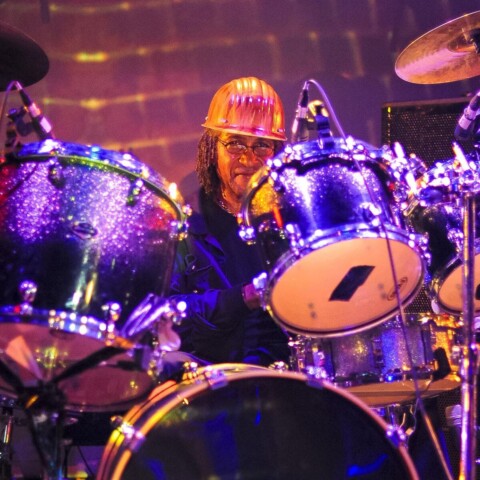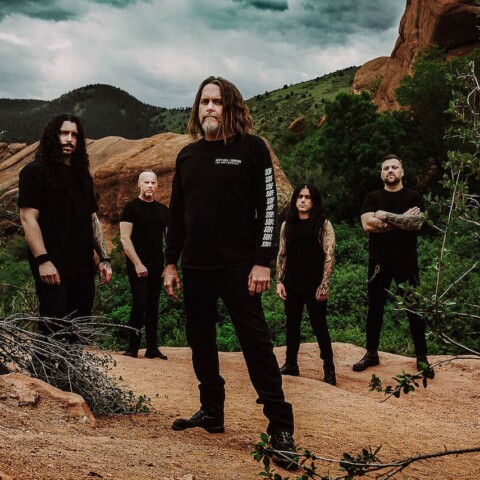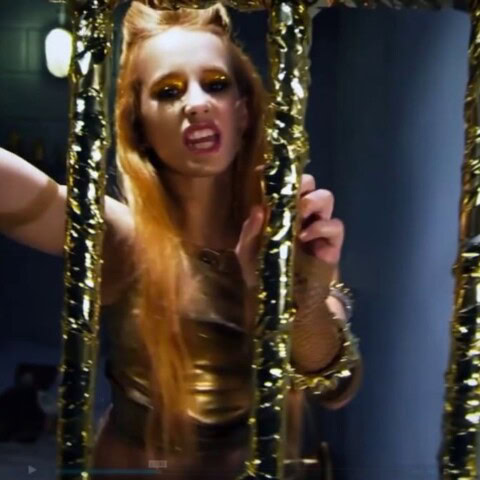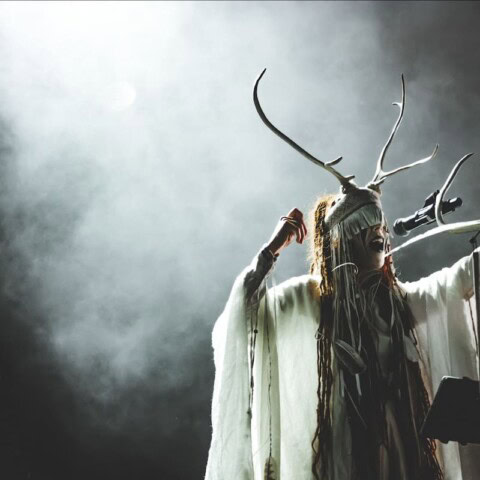 In honour of NZ Music Month, Gary Steel climbs into the crumbling catacombs of his back catalogue, and disinters a different story Every Day In May (EDIM). Today’s piece appeared in the Evening Post some time in 1987.
In honour of NZ Music Month, Gary Steel climbs into the crumbling catacombs of his back catalogue, and disinters a different story Every Day In May (EDIM). Today’s piece appeared in the Evening Post some time in 1987.
Note: I remember being rather awestruck at meeting Shona, mainly because, as a young lad, I’d been a huge fan, had been to see her perform those early hits at Hamilton’s Founders’ Theatre, and knew all the words to the songs.
AFTER SCHOOL, THE 16-year-old girl would hide herself away in the bedroom, take her acoustic guitar in hand and pour her heart into songs. It was Wellington, the year 1971, and Shona Laing was a normal teenager. Except that in her songs, she was obsessed with finding the meaning of it all.
By 1972, Shona Laing was a star.
Television was still black and white, and there was but one channel from which to choose. An extraordinary concentration of attention was focused on that channel’s prime-time programmes, and one such show was an indigenous talent question called Studio One.
Laing, who had not performed in public, entered the New Faces section of Studio One, and came an honourable second.
Within months she had a string of hit singles behind her – including ‘1905’, ‘Masquerade’, and ‘Show Your Love’ – and a debut album, Whispering Afraid.
On the album cover, a winsome Laing stood pensively in the doorway of a white colonial cottage, all flowing caftan and long hippy hair. It was a selection of ferocious idealism and incredible naivety displaying an openness that had disappeared from the dissipating flower power generation. And it was plain that she had immense talent.
Back then, intent on the back-to-the-land ethos, I remember well the songs she sang; songs which espoused such an overt, fundamental desire to make a better world; songs with the same tail-end-of-the-hippy-movement sadness that made John Lennon’s ‘Imagine’ so ingrained in a generation’s consciousness.
 But shooting stars tend not to burn brightly for very long, and Laing soon saw circumstances setting the hose on her flames, with no regard for her inherent talent. It all went wrong for her, and had she not made a miraculous return to fame in 1987 with the chart champion “lament” ‘(Glad I’m Not A) Kennedy’, it would have been “whatever happened to?… issuing from lips in conversations where reminiscing was the order of the day.
But shooting stars tend not to burn brightly for very long, and Laing soon saw circumstances setting the hose on her flames, with no regard for her inherent talent. It all went wrong for her, and had she not made a miraculous return to fame in 1987 with the chart champion “lament” ‘(Glad I’m Not A) Kennedy’, it would have been “whatever happened to?… issuing from lips in conversations where reminiscing was the order of the day.
TODAY SHE IS choosing tracks for her new record, South, but has a break to talk. She meets me with a slightly shy but honest gaze. Fifteen years after the event, the hair is regulation short and choppy, and the clothes functional rather than trendy.
Her appearance is deceptively neutral. The impression is, “here I am. Take me or leave me. I am what I am.”
Not once in a tour-hour conversation does she reveal anything about Shona Laing the person, except for the briefest of glimpses. She is happy talking about her music, happy talking about things she cares about; proffering her opinions about the issues of the day. But she is a woman who guards her private life with pride.
 She barely mentions her stable marriage to actor Peter McCauley, who she met in the UK. Ultimately, everything comes back to the music.
She barely mentions her stable marriage to actor Peter McCauley, who she met in the UK. Ultimately, everything comes back to the music.
It all started, says Shona Laing, when “I did a demo of two songs at school with the music teacher, and they were accepted by Studio One.”
With the instant success came the obligatory recording contract, and she found “all the decisions and career moves were being made for me.” This is not surprising, as she describes herself as having been a “more than averagely naïve 16-year-old. Desperately wanting to emulate her older peers, do the hippy thing, drop out and get into alternative lifestyles, she found: “It was the end of the hippy thing right round the world… it was all winding down in the early ‘70s.”
Laing read somewhere that 1955 was the cusp of a generation, and she was born that year. “I can really identify with that. A lot of my friends are older than me, and yet I feel a strong identification with teenagers. I didn’t quite make the hippy movement, which was disappointing at the time, but it’s probably an advantage that I wasn’t locked into that mould. You know… I didn’t do too much acid! Didn’t do any in those days!”
By 1975, she had made two successful albums and toured the country. When she met record producer who was interested in working with her in London, she found the opportunity too exciting to resist.
“We actually went over there before we had anything concrete organized,” she recalls. “That could have been viewed as a mistake… I did record an album over a year, but there was no deal, and it was never released. I thought it was a really good album. That was a timing thing, I think. Musically, it didn’t fit. The Brits are very fashion oriented in terms of music, and peripheral stuff just doesn’t get a look-in.”
When things began to fall apart, Laing left for the hippy tourist trail in the Middle East, and when she returned to England, with punk rock music suddenly all the rage, her career looked on permanent hold.
Her stay in the Mother Country had always been close to the breadline, and Laing had often wondered how she was going to pay the next rent instalment. But this was ridiculous. Her self-confidence sunk to a new low, and she found herself waitressing in cafes.
 Against all odds, Laing eventually signed a management deal, and recorded another album. This time the record was released, but the factories went on strike. “There was a single off that that was played extensively on radio, but there were no records in the shops.”
Against all odds, Laing eventually signed a management deal, and recorded another album. This time the record was released, but the factories went on strike. “There was a single off that that was played extensively on radio, but there were no records in the shops.”
No one bought the record, but Manfred Mann (of the Earth Band) did hear it, and rang Laing with a view to covering the single. “I went down and sang some songs with him and he said, ‘Join the band’.” She did, and spent two years providing backing vocals for his hitmaking enterprise.
For the first time in England, she could afford to live comfortably, and it was there, too that she had her first taste of rock and roll lifestyle.
“It was that rock and roll myth thing, which I think is really dangerous,” says Laing. “It’s quite easy to think that there are ways you have to live your life in order to qualify to be a musician, which is just a load of rubbish.
“The music industry’s been cleaned up now, which is good in some ways, bad in others,” she says, lamenting the end of youth rebellion through music.
 Laing admits she became involved in the unhealthy lifestyle of the band, and it was this, and a number of other factors, that finally turned her off England.
Laing admits she became involved in the unhealthy lifestyle of the band, and it was this, and a number of other factors, that finally turned her off England.
“I’d actually got quite depressed… it’s a very grey, very black kind of place. It was post-Falklands and there was a kind of fervent nationalism. I found it quite disturbing. And there was heaps of talking about the nuclear issue, the idea that it could happen at any second.”
She had also had enough of the band, and eventually came home for a holiday. After 18 months adjusting to a new lifestyle, she was determined to stay put in New Zealand, if not in Wellington. “I found it a little small and a little cold. I actually think the weather in Wellington is worse than London!”
After some tentative work with Wellington musicians, she packed shop and moved to Auckland, where she now lives in an idyllic setting far from the city and close to the sea.
In 1985, with the help from local filmmaker Larry Parr, Laing recorded an album called Genre. It contained the single that, three years later, would be her ticket to renewed success.
‘(Glad I’m Not A) Kennedy’ made both the Australian and New Zealand top 10, but the song “is kind of old to me”, she says now. Far from being an apologia for a former American president, the song, she contends is far less specific.
“It’s about people, modern living. Somebody suggested it was a lament and I agree with thtat. It is a sad song. There really isn’t an element of cynicism in it, although the Kennedy family leaves a lot of room for cynicism. It was written spontaneously from seeing Teddy Kennedy and thinking, ‘He looks awful’, and just feeling immense sympathy for the guy… probably unwarranted.”
Specific or otherwise, the record carries on Laing’s tendency to observe the world in its many colours, and leave the love songs to other writers. She believes such subjects as nuclear war transcend politics, but points to a recent shift in attitude. Her new album contains one song about South Africa, another about Chernobyl and radiation – “two of the best songs I’ve ever written” – but she says that she has recently “made a conscious effort to write things from a positive point of view.”
Shona Laing describes herself as something of a “political animal” and attributes it to being the youngest of five children and the discussions they would have nightly round the dinner table.
Her father travelled overseas a lot, and she contends that enlightened his attitude. And although it was parents versus kids most of the time, “my parents were both intelligent people, so I think they probably had quite liberated points of view for the mid-‘60s.”
So what are Laing’s political convictions? She maintains she is not party-political, and that she is full of contradictions which are often aired in her songs.
She has been criticised for her anti-American statements, but claims she is not anti-Americans: “I’m just befuddled at the way people accept the garbage that’s thrown at them… a perfect example is that Oliver North (Irangate Affair) business. A guy that was so totally dishonest and became a hero in America.
“It’s that lie of democracy that irritates me, because it’s the biggest lie in the whole world, and America is the bastion of democracy and yet they’ll say to New Zealand, ‘You’ve got to do this and you’ve got to do that’. They undermine our sovereignty and that sort of thing really irritates me.. that they’ve got the gall to pretend that they’re this great democratic nation and yet they manipulate other nations to their own ends.”
Ultimately, Laing sees the political situation coming down to the basic law of physics; “that to each force there is an equal and opposite. The whole superpower battle is an essential part of the world today. We just have to cross our fingers they don’t blow us all up.”
 ALL THIS BITTER talk of the world situation leads one to suspect that perhaps Shona Laing has changed somewhat from her days as the biggest teen hippy in New Zealand, and she admits “I’ve become more cynical.”
ALL THIS BITTER talk of the world situation leads one to suspect that perhaps Shona Laing has changed somewhat from her days as the biggest teen hippy in New Zealand, and she admits “I’ve become more cynical.”
“The heart-rending ballads are not quite as attractive to me as they were.”
But have the essentials changed? Is the 1987 Shona Laing the same person who wrote ‘Show Your Love’?
“Having lived in this world and worked in this business, I’ve closed up a little bit but I hope I’m not too cynical. I’m cynical about the business, but I’m not cynical about the world. On a real, basic level I don’t think I’ve changed.”
Shona Laing, who these days uses drum machines and sequencers to aid the songwriting process, has her first compact disc and her new album released in October. GARY STEEL















